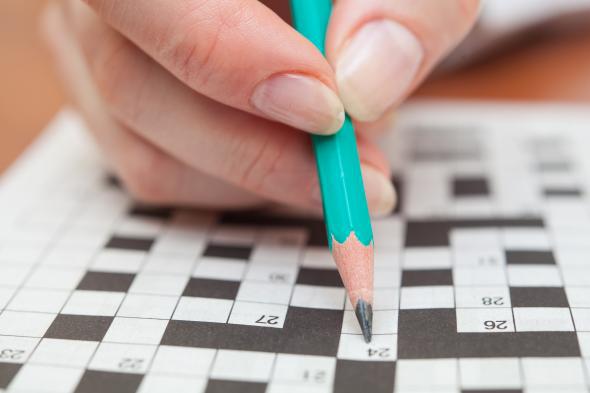Trying to unpack why voters haven’t warmed to Hillary Clinton, David Brooks recently noted that we like people who build lives outside of their jobs, creating spaces in which to be human beings, not human “policy briefs.” “Can you tell me what Hillary Clinton does for fun?” he wrote. “At least in her public persona, Clinton gives off an exclusively professional vibe.” Brooks later suggests that “it’s doubly important that people with fulfilling vocations develop, and be seen to develop, sanctuaries outside them: in play, solitude, family, faith, hobbies and leisure.”
If that’s true, a lot of us are in trouble. What do any of us do for fun? Watch TV, see friends, have a glass of wine? Snack? Does going to the gym count as a hobby? Does cooking dinner count? If we were better athletes and more skillful chefs, would these pursuits count more? What about riding your bike to work or listening to a podcast while you walk the dog? What about dreaming up amazing hobbies to put on your online dating profile—is that a hobby? (It certainly takes up a lot of time, and no one pays you for it.)
Hobby anxiety—the fear that you have failed to cultivate interesting or likable or merely non-imaginary hobbies—is real. It bubbles up in conversations among adult friends over brunch (is that a hobby?) and in existential moments before you drift off to sleep. (Sleep: hobby, biological necessity, or both?) In high school and college, you had structure. If your family could afford them, extracurriculars helped define your identity: debate, track and field, photography, musical theater. But then those activities faded away—as a grown-up person, you lack discipline, time, money, and legal representation to defend you if you break into the local school’s wood-shopping space. Your parents are no longer whipping up your dinners and paying for ballet classes. You leave your job drained, with laundry, chores, and the rent check pressing. Who are you?
More likely than not, you are female. Of the Slate staffers I spoke to, almost all of the women admitted to some degree of hobby anxiety, while many of the men seemed more secure. Perhaps certain activities—cooking, exercise—are more readily considered “hobbies” when men do them, as it’s often taken for granted that women will spend time feeding the family and keeping fit. Or perhaps, without making assumptions about the particular men of Slate who answered my query, a lot of guys have more leisure time than their female counterparts: Studies show that women still perform a lion’s share of “shared” housework. Perhaps, as Christina Cauterucci suggested, the texture of female friendship is simply such that we engage in more deep conversation, while men bond over joint activities (i.e. hobbies).* Perhaps guys are less likely to worry about justifying their time on earth, or at least less likely to confess to that species of inner turmoil.
Though the OED defines a “hobby” as “a favorite occupation or topic, pursued merely for the amusement or interest it affords” (when it’s not trying to tell you the word denotes a small, shambling horse), this meaning is complicated by the fact that you don’t always enjoy your hobbies. You get frustrated, especially if you want to be good at them. There are the dishes in the sink after you try a new recipe, the call of the elliptical when you’d rather curl up in bed, playing scales on the piano when you wish you could play the Mission Impossible theme song. Even knitting or yoga, which purport to soothe the harried soul, come with aggravations: hopelessly tangled yarn and limbs. And what of the thing you love that you hardly ever get a chance to do? Does that count as a real hobby, or just a fantasy hobby? If comic books enthrall me, but I rarely read them and never draw them, can I tell people (fine, OkCupid) I’m a comic book enthusiast without earning four dating-scene Pinocchios?
Slate’s L.V. Anderson alighted on one pursuit I can claim as a hobby without guilt or qualification: crossword puzzles. But by the David Brooks standard of strict work/non-work separation, word games seem like a pretty lame hobby for a writer; lamer still for a words correspondent. Should I bring all this up with a therapist? (Is therapy a hobby? It’s supposed to make you happier!) What if my job is something I enjoy—something I pursue “for the amusement or interest it affords”? Am I inexpressibly fortunate, or am I an aluminum-celled robot lady?
Perhaps an activity becomes a hobby when we say it’s a hobby. Here are some hobbies listed by Slate-sters: “Aggressive skincare routines.” “Watching endless YouTube videos.” “Talking, reading, and listening to podcasts about stationery.” “Eating.” “Feeding myself regularly.” “Listening to music.” “Tennis, collecting records, improv comedy (deceased), playing guitar (deceased), fantasy sports (deceased).” “Taking a walk around the neighborhood.” “Reshelving my books in interesting configurations.”
I’ve resigned myself to my chief hobby of wallowing in hobby anxiety.
Correction, May 26, 2016: Due to an editing error, this post originally misspelled Christina Cauterucci’s surname. Cauterucci’s editor is duly shamed.
